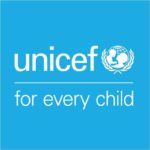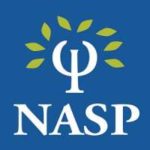Research
- General Research (46)
- High School Research (10)
Civic engagement involves “working to make a difference in the civic life of one’s community and developing the combination of knowledge, skills, values and motivation to make that difference. It means promoting the quality of life in a community, through both political and non-political processes.” Civic engagement includes both paid and unpaid forms of political activism, environmentalism, and community and national service. Volunteering, national service, and service-learning are all forms of civic engagement.
According to the 2006 National Civic and Political Health Survey, seven percent of 15- to 25-year-old Americans participated in 10 or more community engagement or political activities within the previous year.3 When compared to their peers who report no civic engagement activities, this group was more likely to be African-American, urban, attend church regularly, from a family with parents who volunteer, a current student (in college or high school), and from college-educated home.
AmeriCorps (formerly the Corporation for National and Community Service, or CNCS) is a federal agency that sends people power and funding to communities across the country for causes such as disaster response, the opioid crisis, and education.
Participation in civic engagement activities can help youth become better informed about current events. For example, according to the 2006 National Civic and Political Health Survey, approximately a quarter of youth who had not participated in civic engagement activities within the last year did not answer any questions regarding current politics correctly.
Click on the link to learn more.
Digital civic engagement by young people
Rapid analysis | An overview of the latest research with a critical focus on the enablers, constraints and nature of youth civic engagement in the digital space.
This analysis presents an overview of relevant research across the topic of digital civic engagement by young people by asking about the nature and dimensions of engagement, enablers and constraints of digital civic engagement, as well examining some key considerations when supporting young people’s engagement.
The Educational Fund to Stop Gun Violence (Ed Fund) is a 501(c)(3) affiliate organization of the Coalition to Stop Gun Violence. We use a public health and equity lens to identify and implement evidence-based policy solutions and programs to reduce gun violence in all its forms. We seek to make gun violence rare and abnormal. The Ed Fund makes communities safer by translating research into policy. We achieve this by engaging in policy development, advocacy, community and stakeholder engagement, and technical assistance.
The Coalition to Stop Gun Violence develops and advocates for evidence-based solutions to reduce gun injury and death in all its forms. CSGV’s guiding principle is simple: We believe gun violence should be rare and abnormal. We pursue this goal through policy development, advocacy, community engagement, and effective training.
Youth violence is a serious problem that can have lasting harmful effects on victims and their families, friends, and communities. The goal for youth violence prevention is to stop youth violence from happening in the first place.
Preventing youth violence requires addressing factors at all levels of the social ecology—the individual, relational, community, and societal levels.
CDC’s technical package, A Comprehensive Technical Package for the Prevention of Youth Violence and Associated Risk Behaviors, highlights strategies based on the best available evidence to help states and communities prevent or reduce youth violence. The strategies are intended to work in combination and reinforce each other. Strategies and their corresponding approaches are listed in the table below.
In this article published by the National Association of School Psychologists, researchers discuss how trauma affects youth and how it affects their school functioning as well as how schools can use a trauma-informed approach.
The ChildTrauma Academy is a Community of Practice working to improve the lives of high-risk children through education, research, and the dissemination of innovation.
The Afterschool Alliance has updated its, “Evaluations Backgrounder: A Summary of Formal Evaluations of Afterschool Programs’ Impact on Academics, Behavior, Safety and Family Life” as of March 2015.
This resource provides research and case studies on engaging diverse families, especially engaging African-American and Hispanic families in large, urban public school districts.
TASC created this toolkit to help school planning teams refine their family engagement strategies and clarify what they are trying to do, why, and how. TASC includes a definition of “family engagement,” specific strategies and tactics that are rooted in the research on what works, and a curated collection of resources. In addition, they have also created a review of research literature as a companion resource.
This report on Reducing Barriers to Family Engagement offers targeted strategies for reducing and overcoming common challenges and obstacles to engaging families.
As the Australian Council of State School Organisations (ACSSO), they represent the interests of the families and communities of more than 2.4 million children attending government schools in Australia. They are one of the oldest continuously operating parent organizations in Australia and possibly the world. They were formed in 1947 to bring together various state and territory parent groups to develop national policies reflecting the way families wanted public education to be offered for their children.











